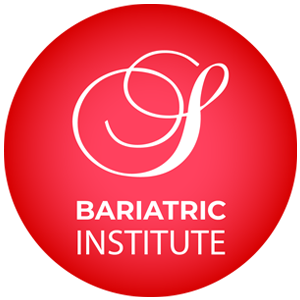Laparoscopic Gastric Bypass Miami
Say goodbye to excess weight and hello to a healthier life!
Are you exploring surgical options for weight loss? Discover the advantages of Gastric Bypass – Laparoscopic Procedure, a proven and effective method for those battling with severe obesity and high BMI.
Laparoscopic Gastric Bypass Procedure is a surgical approach to weight loss. It involves rerouting the digestive system to bypass a portion of the stomach, leading to reduced food intake and nutrient absorption. This procedure is typically recommended for individuals with a significant BMI who are seeking a lasting solution to their weight challenges.
What Is Laparoscopic Gastric Bypass?
Gastric Bypass – Laparoscopic is a surgical procedure that involves creating a small pouch at the top of the stomach and bypassing a portion of the small intestine to restrict the amount of food intake and reduce nutrient absorption. This results in significant weight loss and helps in the management of obesity-related health conditions like diabetes and high blood pressure.
What Laparoscopic Gastric Bypass Can Do
Weight Loss: The primary objective of laparoscopic gastric bypass is significant and sustained weight loss. By creating a smaller stomach pouch and bypassing part of the small intestine, it reduces the amount of food you can eat and decreases absorption of calories and nutrients.
Improvement in Obesity-Related Conditions: Many obesity-related health conditions, such as type 2 diabetes, high blood pressure, heart disease, and sleep apnea, can improve or even resolve after the surgery.
Increased Energy and Mobility: Weight loss can lead to increased energy levels and improved mobility, making it easier to engage in physical activities.
Psychological Benefits: Patients often experience an improvement in self-esteem and quality of life following significant weight loss.
Long-term Outcomes: Gastric bypass has been shown to produce long-term weight loss. Most patients maintain successful weight loss long-term if they adhere to dietary and lifestyle changes.
Hormonal Changes: The surgery affects gut hormones that impact hunger and satiety, often resulting in a decrease in appetite and an increase in feelings of fullness.
It’s important to note that while laparoscopic gastric bypass can be life-changing, it also requires a lifelong commitment to a healthy lifestyle, including diet, exercise, and regular medical follow-up.
The surgery is not a cure for obesity but a tool to help achieve weight loss and improve health. As with any major surgery, there are risks and potential complications, so it should be considered carefully and discussed with a qualified bariatric surgeon.
What Laparoscopic Gastric Bypas Can’t Do
Laparoscopic gastric bypass, while effective for weight loss and improving certain health conditions, has its limitations and cannot achieve everything. It’s important to have realistic expectations about what the surgery can and cannot do:
Miracle Cure for Obesity: Gastric bypass is not a quick or easy solution for obesity. It requires significant lifestyle changes and ongoing commitment to maintain the results.
Eliminate the Need for Diet and Exercise: Post-surgery, a healthy diet and regular exercise are crucial for sustaining weight loss and overall health. The surgery does not eliminate the need for these lifestyle changes.
Guarantee Permanent Weight Loss: While many people experience significant long-term weight loss, it’s possible to regain weight if post-operative guidelines are not followed.
Resolve All Medical Conditions: Although it can improve or resolve conditions like type 2 diabetes, high blood pressure, and sleep apnea, it’s not a guaranteed solution for all obesity-related health problems.
Prevent Nutritional Deficiencies: Because the surgery changes how your body absorbs food, there’s a risk of nutritional deficiencies. Lifelong vitamin and mineral supplementation is often necessary.
Improve Mental Health Conditions: While there can be psychological benefits, gastric bypass is not a treatment for mental health conditions. Patients with issues like depression or eating disorders need to continue receiving appropriate care.
Eliminate Excess Skin: Significant weight loss can leave excess skin, which might require additional surgeries like body contouring to remove.
Suitability for Everyone: Not everyone is a candidate for gastric bypass surgery. Eligibility depends on factors like BMI, health conditions, and previous weight loss attempts.
Immediate Results: Weight loss is gradual; it’s not immediate. The most rapid weight loss occurs in the first months, but it takes time to reach the final result.
Change Eating Habits Automatically: Post-surgery, patients must learn to eat smaller portions and may need to avoid certain foods to prevent discomfort or nutritional issues.
Understanding these limitations is key for anyone considering laparoscopic gastric bypass surgery. It’s essential to discuss these aspects with a healthcare provider to make an informed decision.
What Is the Success Rate of Laparoscopic Gastric Bypas?
The success rate of laparoscopic gastric bypass, a type of bariatric surgery, can be measured in various ways, including weight loss, resolution of obesity-related conditions, and long-term weight maintenance.
Weight Loss Success: Patients undergoing laparoscopic gastric bypass typically experience significant weight loss. On average, these individuals can expect to lose around 65% of their excess weight, with a substantial proportion maintaining at least 50% of their initial excess weight loss. This level of weight loss is significant and can contribute to a dramatic improvement in the quality of life and health of the patients.
Mortality and Complication Rates: The procedure has a relatively low mortality rate, estimated to be around 0.1%. Serious early complications occur in about 5% of cases. These statistics underscore the importance of selecting an experienced surgical team and a well-equipped medical facility to minimize risks.
Long-term Success and Failure Rates: While the surgery is effective, it is not without potential long-term challenges. Approximately 10-15% of patients may experience what is considered a ‘failure’ of the surgery in the long term, which can include inadequate weight loss or weight regain. It’s important to note that ‘failure’ in this context often relates to a combination of factors, including the patient’s adherence to lifestyle changes post-surgery.
Nutritional Considerations: Post-surgery, patients might face challenges related to nutritional deficiencies due to the altered digestive process. Lifelong supplementation and regular medical check-ups are necessary to monitor and manage these potential issues.
Lifestyle Changes: The long-term success of the surgery is highly dependent on the patient’s willingness to adopt and maintain significant lifestyle changes. This includes adhering to a healthy diet, engaging in regular physical activity, and following medical advice on post-operative care.
Comparison with Other Procedures: When compared to other bariatric procedures, laparoscopic gastric bypass typically results in higher weight loss percentages. However, each type of bariatric surgery has its own set of benefits and risks, and the choice of procedure should be personalized based on the patient’s health status and preferences.
Improvement in Comorbid Conditions: Many patients see an improvement or resolution of obesity-related comorbidities, such as type 2 diabetes, hypertension, and sleep apnea, following gastric bypass surgery. This can lead to a reduction in the need for medication and improve overall health.
Laparoscopic gastric bypass surgery is a highly effective bariatric procedure with a good success rate in terms of weight loss and improvement in obesity-related health conditions. However, it is crucial for patients to understand that the surgery is a tool to assist in weight loss and requires a long-term commitment to lifestyle changes.
The choice to undergo this surgery should be made after thorough consultation with healthcare professionals, considering the individual’s specific health needs and circumstances.
Take the First Step Now!
Our specialists are at your service to clarify doubts.
Schedule Your Free Consultation
Take the first step towards a new you. Schedule a consultation today and discover how the Laparoscopic Gastric Bypass Miami procedure can help you achieve long-lasting weight loss results.

